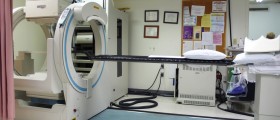
Mesothelioma is a malignant tumor affecting the pleura, peritoneum or pericardium. As it is the case with any other malignant tumor in the body once mesothelioma is confirmed, doctors estimate the stage of the disease and suggest the treatment accordingly. In the end stage of mesothelioma (stage IV) the disease has progressed significantly and there is no way for one to get cured. However, there are plenty of treatment options which manage to bring some symptoms under control and ease all the unpleasant or unbearable issues patients have to deal with.
End Stage Mesothelioma Life Expectancy
It is estimated that once the disease enters terminal stage, an average life span of patients does not exceed 6 and a half months. During this period of time patients should have all the support from their family members and receive treatments that can ease pain, discomfort and many other health issues associated with progression of the disease.
End Stage Mesothelioma Clinical Characteristics
Terminal stage of mesothelioma is characterized by spread of the tumor to nearby organs (their infiltration) as well as spread of the malignant cells to regional or distant lymph nodes and different organs and organ systems. Because different organs are affected patients may complain about a variety of symptoms.
For instance, mesothelioma of the pericardium is associated with the fluid build-up and subsequent cardiac tamponade. Such patients experience severe chest pain and shortness of breath. Mesothelioma of the pleura forms a hard tumorous mass that acts like armor and does not allow the lungs to normally expand while breathing. This is the cause of shortness of breath which is in end stage quite severe. Furthermore, the tumor may cause local infiltration of the esophagus and stomach which leads to dysphagia. Difficulty swallowing is the cause of further weight loss and inadequate intake of fluids. If the tumor affects the larynx, there may be hoarseness of voice. All in all, there are different patterns of tumor spreads and plenty more clinical characteristics of end stage which all generally depend on the affected organs and the size of the tumor.
End Stage Mesothelioma Treatment
There is no cure for terminal stage of the disease. This is why treatment for end stage mesothelioma is palliative instead of curative. Namely, the goal of the treatment is to help patients with all the unbearable health issues they have to face. For instance, it is of major importance to drain all the accumulated fluid inside the pleura and pericardium (this improved breathing). Furthermore, the size of the tumor and its compression can be partially dealt with a mix of palliative radiation therapy and a surgical resection. Some patients may benefit from chemotherapy combined with radiation therapy.
Medications
There are many medications prescribed for management of different health problems. Some of them are opioids, bronchodilators etc. Pain management must be as efficient as possible because such patients most commonly face excruciating pain especially if the tumor has spread to bones.

















Your thoughts on this
Loading...